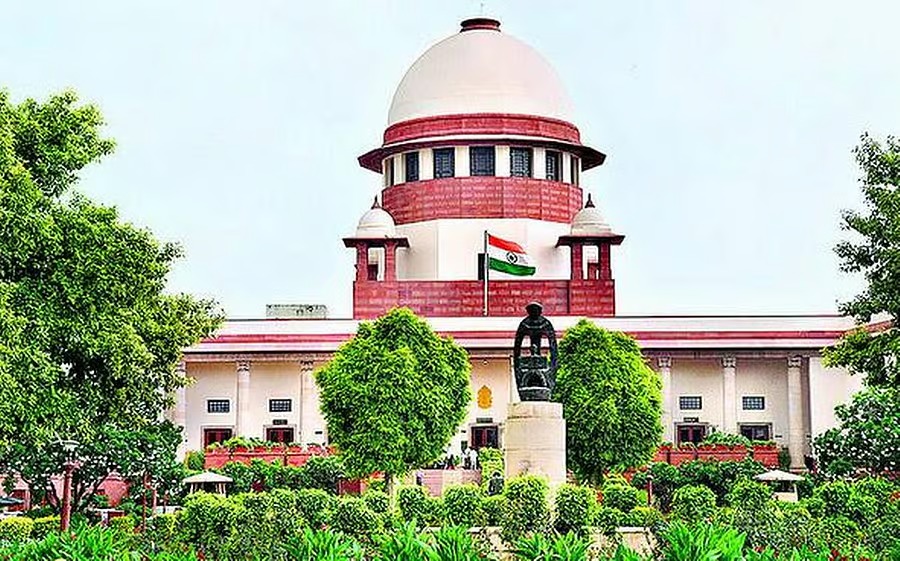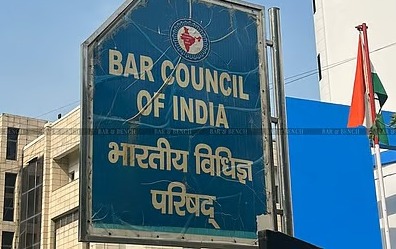Susanta Chatterji, J.@mdashHaving heard further Mr. Roy with Mr. Pratap Chatterjee and Mr. Sibdas Banerjee for the Petitioners and Mr. Promode Kr. Roy, Mr. Uma Sanyal and Mr. A.P. Talukdar for the C.B.I. Authorities and Mr. Anindya Mitra, Mr. Gopal Ghosh and Mr. L.K. Gupta for the State Bank of India, it appears that the Petitioners, namely Sm. Purnima Parolia and another have filed the present writ petition praying, inter alia, for an appropriate writ of mandamus commanding the Respondents, to cancel, rescind and/or withdraw the Regular Cases Nos. 5/90, 6/90, 7/90, 8/90, 9/90 and 10/90 under Sections 120B/420 of the Indian Penal Code and u/s 13(1)(d) read with Section 13(2) of the Prevention of Corruption Act, 1988 and also the case arising out of CZ0/59/1990 (FERA) and all proceedings connected therewith and arising out of the same and further to forbear the Respondents from taking any steps on the basis of the aforesaid proceedings and/or pursuant thereto on the ground that the C.B.I. authorities are not entitled to investigate the alleged offences against the Petitioners in terms of the provision of Delhi Special Establishment Act, 1946 and furthermore, the Respondent authorities have not taken any consent of the State Government to exercise power and jurisdiction in the instant case which is otherwise mandatory. It is alleged in details that at all material times Guru Ispat Ltd. and its subsidiary Swastik Extrusions Ltd. carried on their business having diverse Bank accounts opened with the State Bank of Indore and the allegations made by the Bank authorities as to criminal conspiracy as to offences disclosed in the F.I.R. and the steps taken by the authorities are unwarranted and uncalled for.
2. Accordingly, the writ petition was entertained and an interim order was made by A.M. Bhattacharjee J. on June 12, 1990 to the effect that there would be an interim order of injunction restraining the Respondents from proceeding further with the investigation in respect of the aforesaid cases. An application for vacating the aforesaid interim order was filed and in terms of the order dated June 12, 1990, there was direction of filing affidavits and it was specially observed that the matter would be taken up for final hearing and the application for vacating the interim order was disposed of. The matter appeared before this Bench and as suggested and agreed on July 5? 1991, the matter would be taken up for final hearing.-Pursuant to such directions the matter has been taken up for final hearing in presence of the learned Counsel of the respective parties, as indicated above.
3. At the time of final hearing a short point has arisen before this Court as to whether the C.B.I. Authorities have the jurisdiction to proceed with the investigation. It has been brought to the notice of the Court that the Respondent Bank authorities have filed a comprehensive civil suit for the recovery of the dues. This is obviously not the subject-matter of the present writ petition. It is canvassed before this Court that the proposed investigation by the C.B.I. is unwarranted and uncalled for. Besides, the C.B.I. Authorities have got no jurisdiction to investigate the matter within the State unless there is consent of the State. The relevant provisions have been brought to the notice of the Court that the law is very clear that the provisions of Delhi Special Police Establishment Act, 1946 cannot permit the C.B.I. Authorities, to investigate within the State unless there is specific consent.
4. Mr. Somnath Chatterjee and Mr. P.K. Roy, appearing for the Petitioners have taken this Court to the various provisions of the aforesaid Act wherein it is envisaged clearly that the necessary consent is required. Mr. Promode K. Roy, appearing for the C.B.I. Authorities, has taken this Court to various notifications and the judgment of the Division Bench which is not reported. In the case of Criminal Revision Their lordships, Padma Khastgir J. sitting with Abani Mohan Sinha J., opined that the C.B.I. Authorities have the jurisdiction to investigate the matter within the State. It is, however, brought to the notice of the Court that there are divergent views given by the Hon''ble Judges in the Division Bench and the matter has since been referred to the Third Judge and not on the question of jurisdiction of the C.B.I. to investigate within the State. There is no difference of the views in this regard. The attention of the Court has been drawn to the judgment of Padma Khastgir J., in the aforesaid matter dated May 8, 1991. There is observation that the C.B.I. has ample jurisdiction to investigate violation of various provisions of the Companies Act and the submission that C.B.I. had no jurisdiction was not acceptable by the Court. In view of the Notification dated July 18, 1988, there is a copy of the offences notified under Sections 3 and 5(1) read with 6 of the Delhi Special Police Establishment Act, 1946, enabling the members of the Delhi special Police Establishment Act, 1946, to investigate into the various offences.
5. Mr. Anindya Mitra, learned Advocate appearing for the Bank Authorities, has submitted that there is no doubt as to the right of the C.B.I. Authorities to investigate the nature of the offences as involved in the instant case and attention of the Court has been drawn to a decision in A.K. Sirkar v. State of West Bengal and Anr. and T.K. Chowdhuri v. State of West Bengal and Anr. 1979 (2) CRI .L.J. 150. It was held that the Delhi Special Police Establishment Ordinance-was passed by the Governor-General of India, in 1943 and this was replaced by an Ordinance in 1946 and ultimately the Delhi Special Police Establishment Act was passed to constitute a Police force in Delhi for investigation of offences in the Union Territories and to empower the members of the said Police force to investigate such offences committed in a State with the consent of the Government of that particular State. D.S.P.E. is a Police Force constituted in Delhi and with the consent of the respective Governments it can function in different States. The same Police Force functions in a particular State to which it has been extended, but does not constitute a force in that State. It has further been held that by Notification dated November 6, 1956, Central Government notified that offences under Sections 420 and 120B of the Indian Penal Code be investigated by D.S.P.E. under the Act. By Notification dated February 19, 1963, Central Government extended the powers and jurisdiction of the members of the D.S.P.E. to various States including West Bengal Government. Government of West Bengal by Notification dated April 21, 1960, consented to the D.S.P.E. exercising powers and jurisdiction in the State of West Bengal. In the case A.K. Sirkar Supra before Monoj Kumar Mukherji J. (as His lordship then was) it was found that the C.B.I. was competent to investigate into the alleged offences.
6. Mr. Somnath Chatterjee and Mr. P.K. Roy arguing on behalf of the Petitioners have further argued before this Court that although there is a reference of Section 120B in the judgment in A.K. Sirkar case Supra there is no specific mention of Section 120B in the Notification. In the appropriate Notification which has been referred to in the consent order of the Governor of West Bengal dated July 21, 1980, there is marked absence of Section 120B. It is submitted that the alleged offences are not covered by the impugned F.I.R. and such offences do not enable the C.B.I. to investigate in the manner as proposed and the Petitioners can at best be answerable to pay the dues, if any, upon effective adjudication in the Civil suit. It is further submitted that under no circumstances the C.B.I. may be permitted to investigate into the matter as law does not permit such investigation within the scope of provisions of the Act and in the absence of the specific consent of the State.
7. This Court with great anxiety has considered the submissions of the learned Counsels of the respective parties. This Court is of the view that the writ Court is not going to decide the merit of the allegations in the F.I.R. This Court will only consider that whether the allegations as covered by the F.I.R. or the offences as alleged, can permit the C.B.I. to investigate within the scope of the Act in question and in view of the Notification, as indicated above. Although Mr. Chatterjee and Mr. Roy have strongly argued that there is absence of Section 120B in the Notification in question, the attention of this Court has been drawn to the Notification dated November 6, 1956 and in para. (m) thereto it appears that the offences include attempts, abetments and conspiracies in relation to in connection with the offences mentioned in Clause (a) to (h) and Clause (k) to (1) and any other offences committed in the course of the same transaction arising out of the same facts. This Court has gone through the definition of Section 120B itself and in the judgment in the case of A.K. Sirkar Supra there is specific mention of sub-section that Sections 420 and 120B are covered in the Notification. As such this Court does not appreciate the argument made on behalf of the Petitioners that the offences referred in the F.I.R. do not attract the Notifications and to refer the consent of the State of West Bengal to enable the C.B.I. to investigate the matter in the proper perspective. Since this Court holds that the points of challenging the right of C.B.I. to investigate the offences covered by the F.I.R. is no longer open in view of the decisions both of the Single Bench and also of the Division Bench of this Court, This Court does not find any different point to decide otherwise. The ratio of the decisions as mentioned above of this Court as referred above, is squarely applicable to the facts and circumstances of the present case. For the foregoing reasons, this Court does not find any merit in the writ petition to stall the proceedings and/or the investigation by the C.B.I. in the, manner as required under law. Consequently, the writ petition fails. All interim orders are vacated. There will be no order as to costs.
8. Considering the prayer made by Mr. Somnath Chatterjee, learned Advocate appearing on behalf of the Petitioners, there will be stay of operation of the order for a period of three weeks from date.
9. Let xerox copies of this order be handed over to the learned Advocates for the parties on their application and undertaking to apply for and obtain the certified copy of the same.

